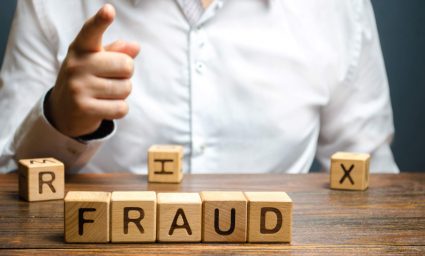 Facing financial difficulties can leave individuals feeling vulnerable and eager for solutions that promise relief. The constant struggle to manage everyday expenses may make offers that seem generous incredibly alluring. Despite the common warnings against high-interest payday loans and excessive credit use, it’s essential to remain skeptical, even when presented with seemingly trustworthy financial support options. Frequently, what appears to be a golden opportunity is, in fact, a well-crafted trap set by unethical scammers who aim to capitalize on your financial distress.
Facing financial difficulties can leave individuals feeling vulnerable and eager for solutions that promise relief. The constant struggle to manage everyday expenses may make offers that seem generous incredibly alluring. Despite the common warnings against high-interest payday loans and excessive credit use, it’s essential to remain skeptical, even when presented with seemingly trustworthy financial support options. Frequently, what appears to be a golden opportunity is, in fact, a well-crafted trap set by unethical scammers who aim to capitalize on your financial distress.
Currently, numerous scams are engineered to exploit people's financial insecurities, underscoring the importance of vigilance and awareness. A key principle for spotting scams is simple: if an offer appears too favorable, it likely is. This detailed guide will outline various scams targeting those facing financial challenges, equipping you with the insights needed to differentiate between authentic opportunities and fraudulent schemes. Knowledge is your best defense against falling prey to these deceitful tactics.
Understand Your Rights to Safeguard Your Tax Refund Claims
There are valid channels through which you can claim tax refunds related to various expenses like work tools, uniforms, and mileage. However, accessing these refunds requires working with a tax rebate services company, which necessitates granting them access to your tax records. It is crucial to realize that no government entity, including HMRC, can accurately assess your eligible refund without your direct involvement or consulting a qualified accountant. Therefore, exercise caution when you receive unsolicited communications claiming, “HMRC has a tax refund of £261 waiting for you.” Such messages often utilize realistic figures, skillfully avoiding the absurd claims typical of notorious scams like the infamous Nigerian Prince schemes. Instead, they may lead you to websites where you could unintentionally divulge sensitive information, risking identity theft or substantial financial losses.
To determine if such communications are scams, meticulously review the sender's details. If you receive a text message, verify the originating phone number for authenticity. It’s wise not to engage with such messages and to consider reaching out to HMRC directly for validation. Remember that HMRC generally communicates via letters or emails sent to your registered address, rather than through unsolicited text messages. Additionally, you can now access your own online tax account to view notifications directly from HMRC. If you receive an email, scrutinize the sender’s address; it should originate from a legitimate HMRC domain. Always avoid clicking on any links included in suspicious messages.
Identify and Protect Yourself from the National Insurance Number Scam
Recent reports, including those from the Daily Express, highlight the alarming rise of the National Insurance scam, which primarily operates through phone calls. Unlike many other scams, these fraudsters may contact you on either your landline or mobile phone. The scam typically begins with a distressing message stating that your national insurance number has been compromised. This fear-inducing tactic is designed to create a sense of urgency, prompting you to press a button to connect with someone who can help. However, taking this action often results in incurring premium call charges while the scammers gather your personal information.
To discern if such calls are fraudulent, remember that legitimate organizations will never demand that you press a button to continue the conversation. If you have any doubts, simply hang up and perform a quick online search for the phone number. A brief investigation can often reveal whether the number is linked to known scams, enabling you to safeguard yourself effectively.
Spotting and Avoiding the DPD or UPS Delivery Scam Effectively
Another common scam involves receiving unsolicited texts or emails claiming that a package is awaiting your action. These messages typically prompt you to click on a link to provide personal information, which is a significant warning sign of potential fraud. To protect yourself, carefully examine the source of the email. Scammers often use distorted or unusual email addresses that do not correlate with legitimate businesses. Moreover, check any recent orders you’ve made on platforms such as Amazon or eBay; these platforms usually provide robust tracking information for your convenience.
It’s also essential to remember that while carriers like DHL may charge duties on international orders, they will always furnish you with precise information regarding your shipment and its origin. If you receive vague messages about package deliveries without any previous orders, exercise extreme caution. Staying informed about personal finance scams is vital to protect yourself from becoming a victim of such schemes. If financial struggles make these scams seem tempting, please consider reaching out to us; we can assist you with our debt consolidation loans for bad credit. Our team is here to help you navigate your financial challenges in a secure manner.
The Article Finance Scams to Watch Out For Was Found On https://limitsofstrategy.com

You’ve highlighted a critical aspect of the financial landscape that many overlook—the psychological toll of financial hardship can cloud our judgment. I’ve seen friends get caught in the spiral of payday loans despite their best intentions, driven by urgency and desperation. It’s alarming how quickly these seemingly benign offers can trap individuals, often leading to a cycle of debt that’s hard to escape.